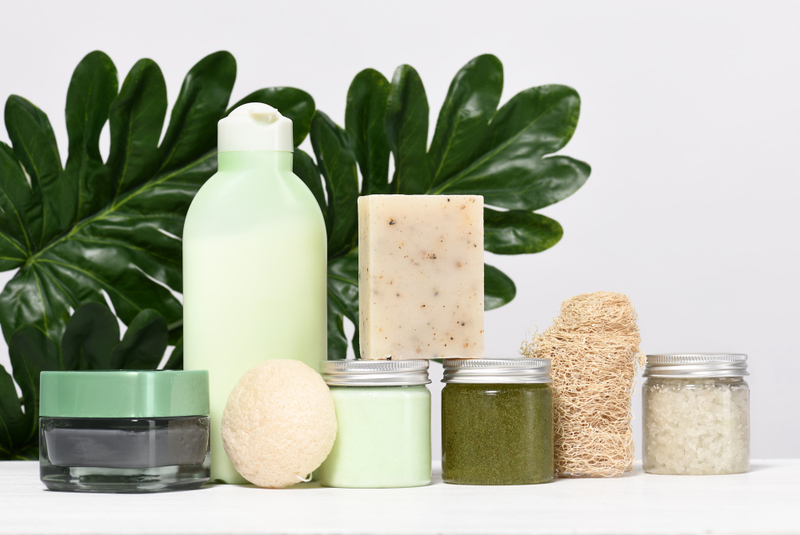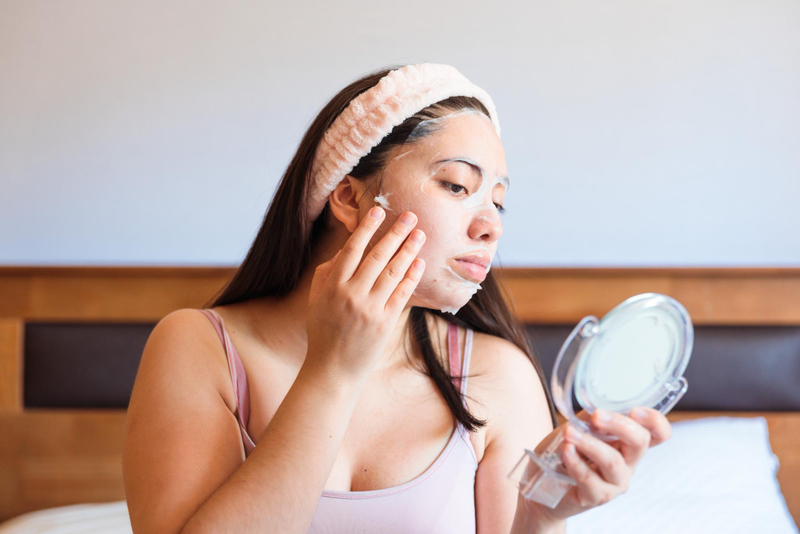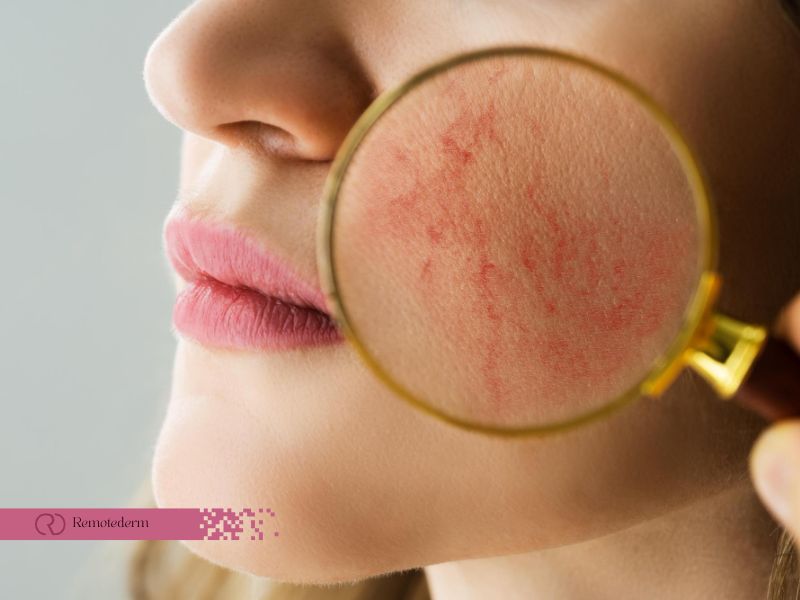Unveil the secrets to radiant skin with our guide on Rosacea Skincare. Explore the complexities of this chronic condition, its triggers, and key symptoms. Discover a dedicated skincare routine tailored to soothe irritation and reduce flare-ups, featuring essential products and a step-by-step guide. Transform your skincare journey with knowledge, tools, and a tailored approach, bidding farewell to persistent redness and welcoming a clearer, more radiant complexion.
Understanding Rosacea
Rosacea is a chronic skin condition that often presents as redness and visible blood vessels in the face. Its exact cause is unknown, but it may involve a combination of hereditary and environmental factors. Rosacea has various triggers that may cause it to flare up. These triggers can include certain foods, extreme temperatures, sunlight, stress, and alcohol, among others.
Key symptoms of Rosacea include
- Facial redness with a tendency to flush or blush easily.
- Swollen red bumps and pimples.
- Visible and tiny blood vessels on the surface of the skin (telangiectasia).
- Ocular issues like irritated, red and swollen eyelids or dry eyes.
In more severe cases, a patient may experience rhinophyma, an enlargement of the nose, usually in men, caused by excess tissue.
Early diagnosis and management can significantly improve the quality of life for individuals with rosacea. Dermatologists usually tailor treatments to the specific needs and symptoms of the individual, emphasizing the importance of understanding and recognizing one’s triggers and symptoms early on.
Crafting Your Rosacea Skincare Routine
Managing rosacea requires a dedicated skincare routine tailored to soothe irritation and reduce flare-ups. The right regimen can help maintain the skin’s barrier, minimize symptoms, and improve the complexion’s overall appearance.
Rosacea Skincare Routine Essentials
A rosacea-friendly skincare routine should focus on gentle, non-irritating products. Key essentials include:
- Cleansers: Look for a soap-free, gentle cleanser that doesn’t strip the skin’s natural oils.
- Moisturizers: Use a ceramide-rich moisturizer to maintain the skin barrier and lock in moisture.
- Sunscreens: Always apply a broad-spectrum sunscreen with an SPF of 30 or higher, designed for sensitive skin.
- Anti-inflammatory Topicals: Ingredients like niacinamide and azelaic acid can help soothe redness and inflammation.

A Step-by-Step Guide to Radiant Skin
- Cleanse gently twice a day to remove impurities without causing irritation.
- Moisturize while the skin is still damp to maximize hydration.
- Protect with sunscreen daily, irrespective of whether you’re spending time outdoors.
- Treat your skin to appropriate medicated creams and serums as recommended by a dermatologist.
Best Skin Care for Rosacea: Unveiling the Gems
When crafting your skincare arsenal, here are the gems to look for:
- Protection: Zinc oxide or titanium dioxide-containing sunscreens.
- Hydration: Hyaluronic acid serums for deep hydration without greasiness.
- Correction: Green-tinted concealers to neutralize redness on the skin.
Remember to introduce new products slowly and one at a time, allowing your skin to adapt. Regular consultations with your dermatologist will help refine your routine and keep your rosacea under control, promoting healthier, more radiant skin.
Can Skin Care Products Cause Rosacea? A Closer Look
Skin care products do not cause rosacea; however, certain ingredients in these products can trigger rosacea flare-ups in individuals who are already prone to the condition. Rosacea-sensitive skin may react to harsh exfoliants, alcohol-based products, synthetic fragrances, and even some natural ingredients like witch hazel or eucalyptus oil, leading to increased redness, irritation, and discomfort.

Taking a closer look, it’s important for those with rosacea to:
- Avoid Irritants: Identify and steer clear of ingredients known to irritate sensitive skin.
- Patch Test: Prior to using new skin care products, do a patch test to check for adverse reactions.
- Gentle Formulas: Choose products specifically formulated for sensitive skin, which are typically free from aggressive chemicals.
Managing rosacea is streamlined with the advent of online rosacea treatment services. These digital health platforms provide access to dermatologists who can offer customized advice and treatment options. Utilizing such online resources can be a useful strategy in crafting an effective skincare routine, minimizing the risk of exacerbating your rosacea symptoms from the comfort of your home.
How to Care for Rosacea Skin? A Holistic Approach
Caring for rosacea skin extends beyond topical treatments; it incorporates a holistic approach that includes lifestyle modifications, dietary considerations, and stress management. A comprehensive care strategy can significantly impact the skin’s health and the frequency of rosacea flare-ups:
- Firstly, diet plays a vital role. It’s advisable to avoid hot beverages, spicy foods, and alcohol, which are known to trigger rosacea symptoms. Instead, focusing on a diet rich in anti-inflammatory foods like omega-3 fatty acids, green leafy vegetables, and fruits can support skin health.
- Secondly, stress is a recognized trigger for rosacea. Integrating stress-reduction techniques such as yoga, meditation, or deep-breathing exercises can be beneficial in managing this condition. Consistent sleep patterns and adequate rest are also essential for skin rejuvenation.
- In addition, environmental factors should be monitored. Protecting the skin from extreme weather conditions by wearing appropriate clothing and using gentle skincare products with minimal ingredients can prevent irritation. Moreover, identifying individual triggers and avoiding them can greatly reduce the number of flare-ups.
Thus, a holistic approach to caring for rosacea skin involves treating the body as a whole, understanding that every aspect, from nutrition to emotional well-being, influences skin health. Embracing this comprehensive strategy can lead to improved management of rosacea symptoms and a healthier complexion.

What Is the Best Skin Care for Rosacea?
Developing an optimal skincare routine for rosacea is paramount to managing the condition. To understand what is the best skin care for rosacea, consider the following elements:
- Anti-Inflammatory: Incorporate products with anti-inflammatory ingredients, such as chamomile or green tea extract. These natural soothers can help reduce the skin’s redness and provide a calming effect that is essential for rosacea-prone skin. Oftentimes, chamomile is also rich in flavonoids and has been used traditionally for its antioxidant properties, while green tea extract contains polyphenols that can help to protect the skin from oxidative stress.
- Minimalist Formulas: Opt for minimalist formulations with fewer ingredients to minimize the risk of irritation. The less complicated a product is, the easier it is to identify and avoid potential irritants or allergic reactions, which is especially beneficial for the hypersensitive skin of rosacea patients. Furthermore, a streamlined ingredient list often means the actives are more concentrated and effective, reducing the need for a complex routine.
Final Thoughts
Embarking on the journey of rosacea skincare can transform the way you see and experience your skin. With the right knowledge and tools outlined in this guide, you can bid farewell to persistent redness and embrace a routine that nurtures and balances your complexion. Whether it’s through the selection of powerhouse anti-inflammatory ingredients or by streamlining your skincare regimen with minimalist formulas, the path to calmer skin is within reach. Remember, the cornerstone of effective rosacea care lies in a tailored approach – one that takes patience, understanding, and a dash of self-compassion. Stick to the strategies that resonate with your skin’s needs, stay consistent with your regimen, and watch as your skin thanks you with a clearer, more radiant appearance.
FAQs
- Are natural skincare ingredients safe for rosacea?
While natural, some ingredients like witch hazel or eucalyptus oil may irritate rosacea-prone skin, so individual responses to products can vary.
- Can makeup worsen rosacea symptoms?
Some makeup may irritate sensitive skin; however, using mineral-based or green-tinted products can help conceal redness without causing flare-ups.
- Is it safe to exfoliate the skin with rosacea?
Physical exfoliants may be too harsh; however, gentle enzymatic exfoliants could be used sparingly under a dermatologist’s guidance.
- Is hyaluronic acid good for rosacea?
Hyaluronic acid can be beneficial as it offers deep hydration without greasiness, which is suitable for the sensitive skin of rosacea patients.
